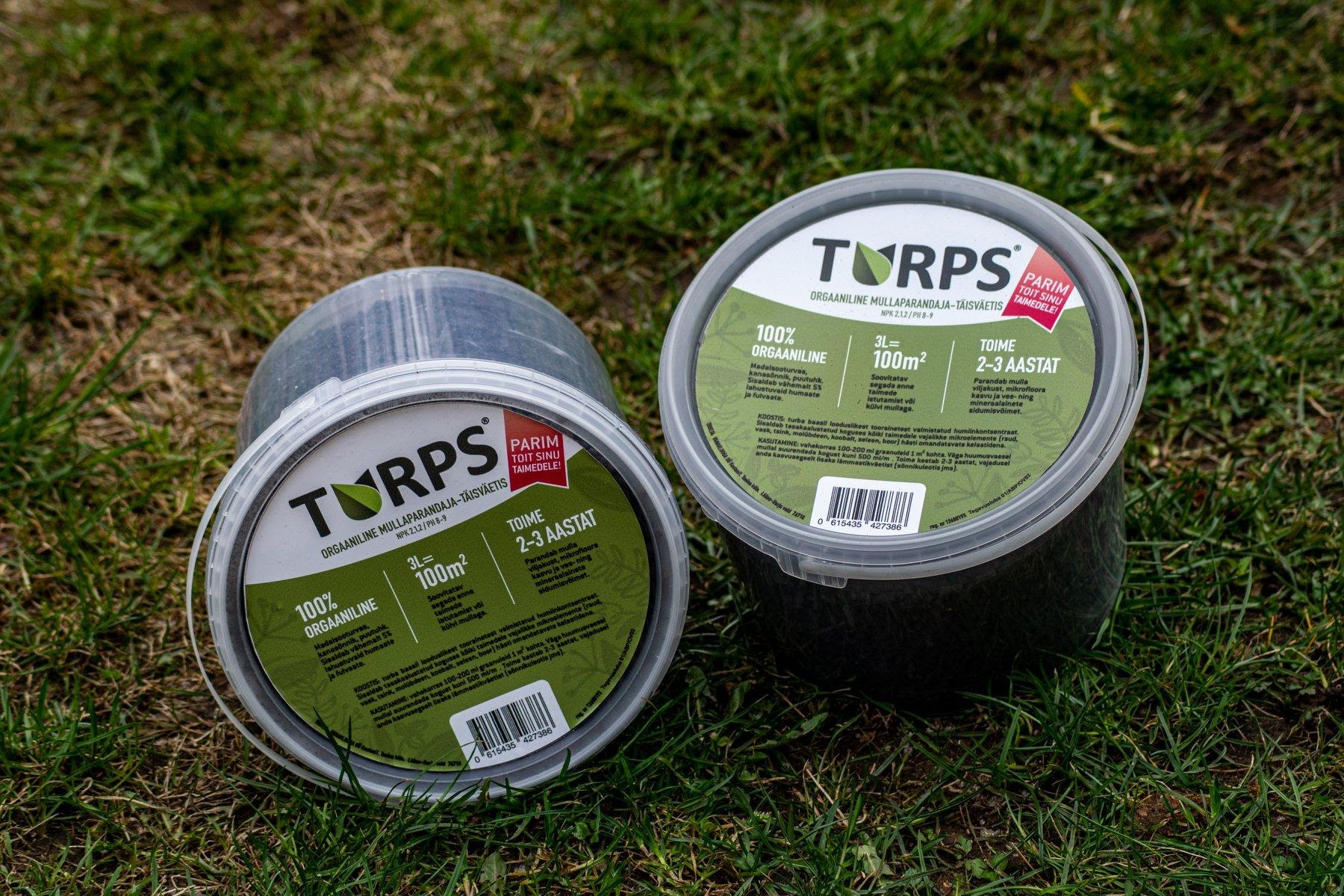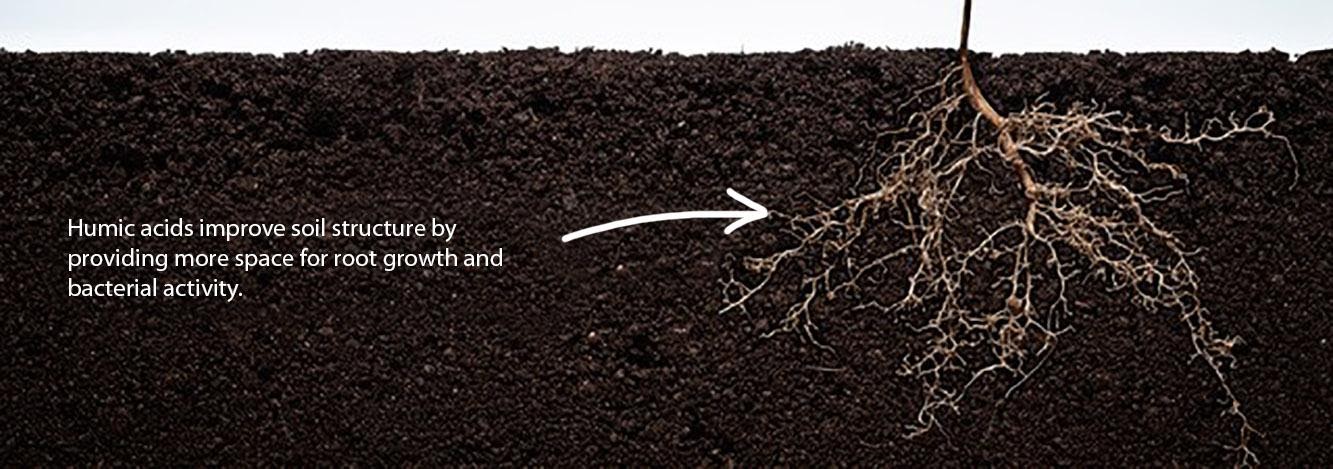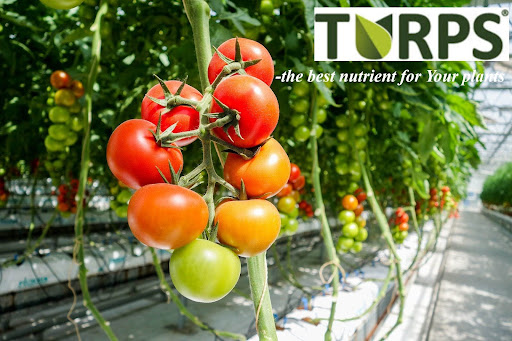What is humic fertilizer?
Humic fertilizer is a type of organic fertilizer derived from natural sources such as peat, lignite (brown coal), or composted plant materials.
It primarily contains humic substances, including humic acids, fulvic acids, and humins, which are complex organic molecules formed through the decomposition of plant and animal matter over time.
Humic fertilizers: the natural boost your corps and soil need
When it comes to nurturing both crops and soil, humic fertilizers are a game changer. Packed with naturally derived compounds like humic acids, fulvic acids, and humins, these fertilizers come from the slow, natural decomposition of plant and animal matter over time. They play a vital role in promoting healthy soil and robust plant growth.
For crops, the benefits are clear and plentiful. Humic acids bind with key nutrients in the soil—think nitrogen, phosphorus, and potassium—making them easier for plants to absorb. Fulvic acids, being smaller in size, can even slip into plant cell walls, further boosting nutrient absorption. This means your plants aren’t just growing; they’re thriving.
Humic fertilizers don’t stop at feeding plants. They also act as natural growth stimulators, encouraging roots to grow longer and stronger. The result? Healthier plants with more resilience and, ultimately, better yields. And when environmental challenges come into play—like drought, salty soils, or extreme temperatures—plants treated with humic fertilizers are better equipped to handle the stress. They even show improved resistance to pests and diseases, thanks to their enhanced natural immunity.
Another bonus? These fertilizers promote better photosynthesis. By increasing chlorophyll production, they help plants grow more vigorously, leading to healthier crops with improved quality.
But it’s not just the plants that benefit. Humic fertilizers work wonders for the soil too. They improve soil structure, helping particles clump together into a crumb-like texture. This means better aeration and water flow, especially in heavy, compacted soils. They also enhance the soil’s ability to retain moisture, which is a lifesaver during dry spells, reducing the need for constant watering.
Humic acids are also natural detoxifiers. They bind with harmful heavy metals and toxins in the soil, making them less available to plants and helping reduce environmental pollution. Plus, they boost microbial activity by providing food for beneficial microorganisms. This increases nutrient cycling and enhances overall soil fertility.
Unlike chemical fertilizers, which can degrade soil over time, humic fertilizers contribute to the soil’s long-term health. They build up organic matter and support sustainable farming practices, ensuring that the land remains fertile for years to come.
So, why choose humic fertilizers? First, they’re eco-friendly and sustainable, made from natural sources that reduce reliance on synthetic chemicals. They’re versatile too—whether you’re managing a large farm or tending to a home garden, humic fertilizers work across a variety of crops and soil types. And while the upfront cost might be a bit higher than conventional options, the long-term payoff is worth it: healthier soil, better yields, and less need for additional inputs.
In the end, humic fertilizers offer a holistic, sustainable approach to agriculture. They boost both soil health and crop productivity, making them an invaluable tool for farmers looking to increase yields while caring for the environment.
TURPS as a unique humic fertilizer
TURPS is an innovative organic humate fertilizer and soil improver designed to enhance plant growth and soil fertility. Developed through a patented method, TURPS utilizes peat and other natural materials to create a product that is both environmentally friendly and highly effective.
Key Benefits of TURPS:
- Accelerated Plant Growth: By promoting rapid root development, TURPS leads to faster flowering and fruiting, resulting in yield increases of 20–40%.
- Enhanced Soil Fertility: TURPS enriches the soil with active organic substances, improving its structure and nutrient content.
- Environmental Sustainability: The production and use of TURPS generate no waste, exemplifying principles of the circular economy.
- Improved Water Retention: TURPS enhances the soil’s ability to retain moisture, which is particularly beneficial in arid conditions.
Unique Features:
- All-Natural Composition: All components of TURPS are organic and processed using a patented method, ensuring a natural approach to soil enhancement.
- Versatile Application: Suitable for both home gardening and industrial agriculture, TURPS can be used across a variety of plant types and soil conditions.
- Soil Health Improvement: Regular use of TURPS improves soil aeration and increases the water retention capacity of heavy and compact soils.
Application Guidelines:
For optimal results, mix TURPS with soil prior to planting or sowing. Specific application rates vary depending on plant type and soil conditions. For instance, for medium-sized plants like tomatoes or strawberries, mixing 200 ml of TURPS into the planting hole is recommended. For shrubs, use 200 ml, and for fruit trees, apply 1–3 liters per tree. After planting, water the plants more generously than usual to ensure adequate moisture, as TURPS can absorb water up to 600 times its volume.
In summary, TURPS stands out as a unique humic fertilizer that not only boosts plant growth and crop yields but also contributes to sustainable and eco-friendly farming practices. Its natural composition and innovative production process make it an excellent choice for those seeking to improve soil health and agricultural productivity.
Read more about our humic solutions
What is humic fertilizer?
Humic fertilizer is an organic fertilizer derived from natural sources like peat, lignite (brown coal), or composted plant materials. It contains humic substances—humic acids, fulvic acids, and humins—which form through the natural decomposition of plant and animal matter. These compounds play a crucial role in improving soil health and supporting robust plant growth.
How do humic fertilizers benefit crops?
Humic fertilizers enhance nutrient uptake by binding with essential nutrients like nitrogen, phosphorus, and potassium, making them more accessible to plants. They stimulate root growth, leading to healthier, more resilient plants and increased crop yields. Additionally, they help plants withstand environmental stresses such as drought, salinity, and extreme temperatures, while improving resistance to pests and diseases.
What are the benefits of humic fertilizers for soil?
Humic fertilizers improve soil structure by promoting the aggregation of soil particles, enhancing aeration, and increasing water infiltration. They boost the soil’s ability to retain moisture, reduce soil compaction, detoxify harmful substances, and foster microbial activity. These factors contribute to long-term soil fertility and sustainable farming.
Are humic fertilizers environmentally friendly?
Yes, humic fertilizers are eco-friendly and sustainable. They are made from natural, renewable sources and reduce the need for synthetic fertilizers and chemicals. Their use supports sustainable agricultural practices by improving soil health without harming the environment.
What makes TURPS a unique humic fertilizer?
TURPS is an innovative organic humate fertilizer developed through a patented method that uses peat and other natural materials. It’s designed to boost plant growth and soil fertility while being environmentally sustainable. TURPS stands out due to its accelerated plant growth benefits, improved soil fertility, and its ability to retain water effectively, especially in arid conditions.
How does TURPS improve plant growth?
TURPS promotes rapid root development, which leads to faster flowering and fruiting. This results in yield increases of 20–40%. It also enhances photosynthesis, allowing plants to grow more vigorously and produce higher-quality crops.
Can TURPS be used in all types of agriculture?
For the best results, mix TURPS with soil before planting or sowing. Application rates vary depending on the plant type and soil conditions. For medium-sized plants like tomatoes or strawberries, 200 ml per planting hole is recommended. For shrubs, use 200 ml, and for fruit trees, apply 1–3 liters per tree. After planting, water the plants generously, as TURPS can absorb water up to 600 times its volume.
Does TURPS contribute to sustainable farming?
Yes, TURPS is produced following circular economy principles, meaning its production and use generate no waste. Its natural composition and sustainable manufacturing process make it an ideal choice for eco-friendly farming practices.
Why should I choose humic fertilizers like TURPS over chemical fertilizers?
While chemical fertilizers can degrade soil over time, humic fertilizers build up organic matter, improve soil structure, and promote long-term soil fertility. They also reduce environmental impact, support sustainable agriculture, and often result in healthier crops and better yields in the long run.
TURPS and other humic fertilizers offer a holistic, sustainable approach to agriculture, making them invaluable tools for farmers and gardeners aiming to improve both soil health and crop productivity while caring for the environment.
Understanding Humic Fertilizers and TURPS
Curious about humic fertilizers and how they can benefit your crops and soil?
Whether you’re a seasoned farmer or just starting your gardening journey, this FAQ covers everything you need to know about humic fertilizers and TURPS—a unique, eco-friendly solution designed to boost plant growth and soil health.
From understanding how these natural fertilizers work to learning why TURPS stands out from the rest, we’ve got all your questions answered.

TURPS is a versatile organic soil enhancer that significantly improves soil structure, fertility, and water retention. It is especially beneficial for various agricultural and horticultural applications.
How to use
Fruit Trees and Shrubs
Improving Crop Yields
Urban Gardening
Turf and Landscaping
Sustainable Farming
Science
Yield Growth
Improved Soil Structure
Root Development
Better Resistance
Soil Fertility Improvement
Contact Us
TURPS Soil Academy
Pärtsaare, Estonia
info@turpsorganic.com
Mon-Fri 09.00 a.m-05.00 p.m
TURPS is suitable for use in organic production in accordance with the
requirements of Commission Regulations (EC) No 834/2007 and 889/2008
© All right reserved by TURPSORGANIC
Privacy policy


